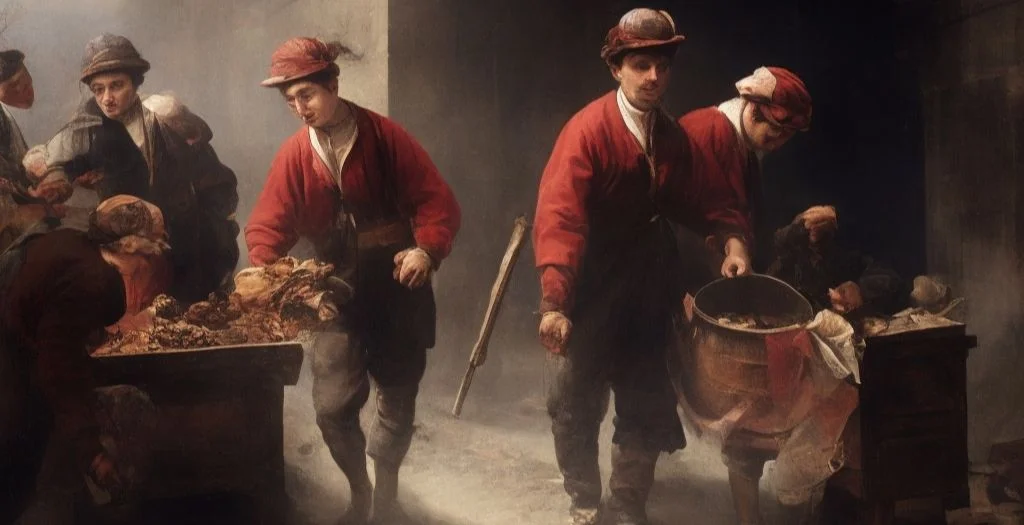Labor Day is a federal holiday in the United States and Canada that honors workers and the labor movements that helped bring about such victories. It will be observed on the Monday following Labor Day, September 5, 2023. It marks the transition from summer to fall for many people.
But I’d like to know more about the origins and significance of Labor Day. How do people typically celebrate? And what kind of arguments and problems does it face? This post addresses all of your concerns and more. From its origins to its modern celebrations, and from contentious issues to practical advice, this page has it all. Whether you’re a local, a tourist, a student, or a worker, this post will help you appreciate and observe Labor Day.
History of Labor Day
The first Worker’s Day was in the late 1800s when the Industrial Revolution in the United States and Canada was causing fast economic growth, social changes, and worker dissatisfaction. It was usual for employers to abuse their employees by making them work long hours for poor pay in dangerous settings. They organized into unions in an effort to improve their working circumstances. Strikes, demonstrations, rallies, and marches were other outlets for their frustrations and displays of power.
The Pullman Strike of 1894 served as a significant impetus for the establishment of Labor Day. The Pullman Company, a manufacturer of train carriages, had to cut workers’ pay and raise rents as a consequence of the Great Depression. After employees at the Pullman car company went on strike, the American Railway Union urged a statewide boycott of Pullman products. The strike had an effect on commerce and rail transportation throughout the country. As federal authorities intervened to end the walkout, violence and fatalities ensued.
People had sympathy for the workers and were critical of the management during the Pullman Strike. So, in June 1894, President Grover Cleveland sponsored legislation to make the Day a legal holiday throughout the United States. Both houses of Congress approved the measure in just six days, and President Cleveland then signed it into law. The president made this choice in an effort to appease the labor movement and prevent more unrest.
Contrary to popular belief, Labor Day is not a new holiday. Several localities around the United States have been celebrating it since the 1880s. On September 5, 1882, the Central Labor Union of New York City organized the first-ever Labor Day parade. There were about 10,000 employees present, and the march began at City Hall and ended in Union Square. After the march, there were speeches and entertainment.
Since 1889, on May 1st, people have celebrated May Day, also known as International Workers’ Day. This holiday was the inspiration for Labor Day. On May Day, many recall the Haymarket Affair of 1886, when a bomb went off and police opened fire during a peaceful protest in Chicago demanding an eight-hour workday. The catastrophe harmed or killed many people.
The labor movement in Canada, which has celebrated its own version of the Day since 1872, was also influential in the development of the American holiday. The Nine-Hour Movement, which began in Canada, is commemorated every year on that day. The movement planned and executed a massive protest and strike in Toronto in April 1872. They’ve been leveling conspiracy charges against the heads of the strikes. They weren’t freed, however, until Prime Minister John A. Macdonald stepped in and the Trade Union Act was approved.
When the federal government of the United States established the Day in 1894, the federal government of Canada quickly followed suit. Since then, the two countries’ festivities have shared the same date and general spirit, if not the exact same rituals.
Labor Day Traditions and Celebrations
Labor Day is a time to honor the good things that workers and their groups do for society. Additionally, it honors those who fought for employees’ rights to be treated with dignity and fairness on the job. We need to think about how important the labor movement is now and in the future.
Relax and spend time with family and friends; that’s what Labor Day is about. It’s a festival honoring the changing of the seasons from summer to fall. For a wonderful time and an unforgettable experience.
People observe Labor Day in a wide variety of ways, including:
- Parades: Parades are one of the oldest and most common traditions of Labor Day. They showcase the diversity and strength of the labor movement and its allies. They also feature floats, bands, dancers, performers, and celebrities. Speeches, protests, or festivals frequently follow them.
- Barbecues: Barbecues are one of the most popular and casual ways of celebrating Labor Day. They involve grilling food, such as burgers, hot dogs, steaks, or ribs, and serving them with salads, sides, and drinks. They are usually held in backyards, parks, or beaches. They are a great way to enjoy the warm weather and socialize with others.
- Picnics: Picnics are another common way of celebrating the Day. They involve packing food, such as sandwiches, salads, fruits, or snacks, and bringing it to a scenic or relaxing spot. Parks, gardens, or lakes usually host them.
- They are a great way to enjoy nature and spend quality time with loved ones.
- Fireworks: Fireworks are one of the most spectacular and festive ways to celebrate Labor Day. They involve lighting up the sky with colorful and dazzling explosions. They often take place late at night in public areas like stadiums, waterfronts, and bridges. They are a great way to end the day with a bang and marvel at the beauty of art and science.
- Sales: Sales are one of the most commercial and consumerist ways of celebrating Labor Day. They involve offering discounts, deals, or promotions on various products or services.
These are but a handful of the various ways in which people celebrate the Day. There is no wrong way to celebrate the Day, so long as it gives you pleasure and respects the occasion. Adding new elements to the Labor Day celebration keeps things fresh and intriguing. Spend the day viewing fireworks and having a picnic in the park. One option is to hit the road in search of many Labor Day parties. You may also shop online for deals and then rest with some reading or watching a movie at home. The potential outcomes are almost endless.
Labor Day Controversies and Challenges
Labor Day commemorates the patriotic service of Americans and their labor unions. It does, however, come with certain difficulties and debates. The following issues surrounding Labor Day have generated debate and concern:
- Its relevance: Some people question the relevance and significance of Labor Day in the modern era. They argue that the labor movement has lost its influence and power and that workers’ rights and conditions have improved or declined over time. They also claim that Labor Day has become more of a symbolic or ceremonial holiday than a meaningful or political one.
- Its impact: Some people question the impact and effectiveness of Labor Day on workers’ rights and benefits. They argue that Labor Day has not brought any substantial or lasting changes to the labor market or the economy. They also claim that Labor Day has not addressed or solved some of the major problems or challenges that workers face today, such as inequality, discrimination, exploitation, or automation.
- Its commercialization: Some people question the commercialization and consumerism of Labor Day. They contend that businesses and corporations have seized control of Labor Day and are using it as an excuse to advertise their goods or services, increase sales, or both. They also contend that other celebrations or occasions, such as Back to School, Halloween, or Black Friday, have diluted Labor Day and obscured its original meaning or message.
- Its date: Some people question the date and timing of Labor Day. They say the first Monday in May, as it is in most other nations, would be a better time to honor workers than the first Monday in September. They also claim that May 1 is more historically and internationally significant, as it commemorates the Haymarket Affair and International Workers’ Day.
On this Day, people in the United States and Canada recognize the contributions that workers have made to the success of their respective economies. We must consider the history and future relevance of the labor movement now.
It’s also a good time to relax and get out with friends and family. It’s a festival honoring the changing of the seasons from summer to fall.
From its historical context to its contemporary celebrations, disputes, and suggested practices, this page has it all covered for you. You should now have a better grasp of Labor Day and its proper observance after reading this article.
Please share your thoughts and questions in the space provided.
Source: ZoxPR.

